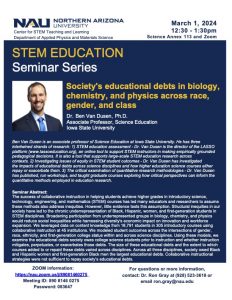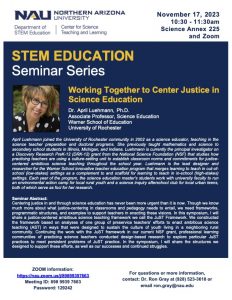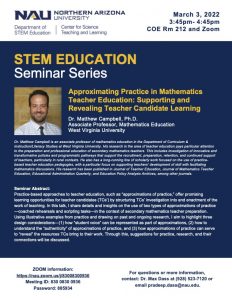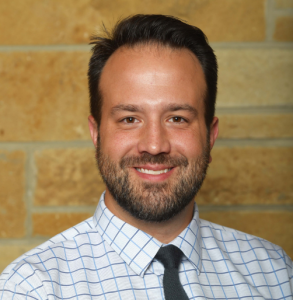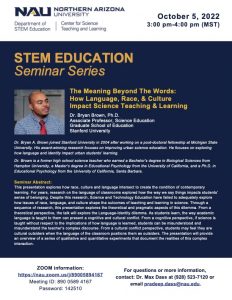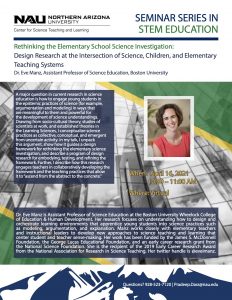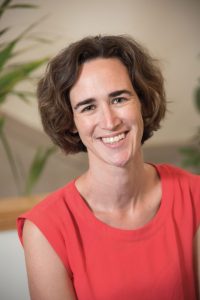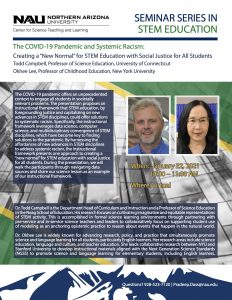Contact Department of STEM Education
If you have questions or would like to support our efforts please contact us.
STEM Education Seminars
NAU’s Department of STEM Education and Center for STEM Teaching & Learning invite you to join us
DSE and CSTL hosts experts from across the country to give seminars each semester on STEM education.
Spring 2025 lecture
March 3, 2025 | 2:20-3:35pm
The recorded lecture and slides are available.
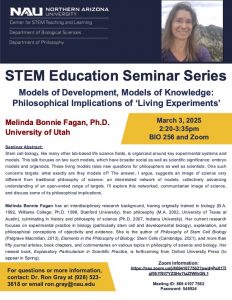 Models of Development, Models of Knowledge: Philosophical Implications of ‘Living Experiments’
Models of Development, Models of Knowledge: Philosophical Implications of ‘Living Experiments’
Stem cell biology, like many other lab-based life science fields, is organized around key experimental systems and models. This talk focuses on two such models, which have broader social as well as scientific significance: embryo models and organoids. These living models raise new questions for philosophers as well as scientists. One such concerns targets: what exactly are they models of? The answer, I argue, suggests an image of science very different from traditional philosophy of science: an interrelated network of models, collectively advancing understanding of an open-ended range of targets. I’ll explore this networked, communitarian image of science, and discuss some of its philosophical implications.
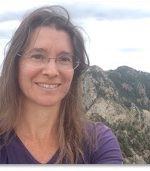 Dr. Melinda Bonnie Fagan has an interdisciplinary research background, having originally trained in biology (B.A. 1992, Williams College; Ph.D. 1998, Stanford University), then philosophy (M.A. 2002, University of Texas at Austin), culminating in history and philosophy of science (Ph.D. 2007, Indiana University). Her current research focuses on experimental practice in biology (particularly stem cell and developmental biology), explanation, and philosophical conceptions of objectivity and evidence. She is the author of Philosophy of Stem Cell Biology (Palgrave Macmillan, 2013), Elements in the Philosophy of Biology: Stem Cells (Cambridge, 2021), and more than fifty journal articles, book chapters, and commentaries on various topics in philosophy of science and biology. Her newest book, Explanatory Particularism in Scientific Practice, is forthcoming from Oxford University Press (to appear in Spring).
Dr. Melinda Bonnie Fagan has an interdisciplinary research background, having originally trained in biology (B.A. 1992, Williams College; Ph.D. 1998, Stanford University), then philosophy (M.A. 2002, University of Texas at Austin), culminating in history and philosophy of science (Ph.D. 2007, Indiana University). Her current research focuses on experimental practice in biology (particularly stem cell and developmental biology), explanation, and philosophical conceptions of objectivity and evidence. She is the author of Philosophy of Stem Cell Biology (Palgrave Macmillan, 2013), Elements in the Philosophy of Biology: Stem Cells (Cambridge, 2021), and more than fifty journal articles, book chapters, and commentaries on various topics in philosophy of science and biology. Her newest book, Explanatory Particularism in Scientific Practice, is forthcoming from Oxford University Press (to appear in Spring).
Spring 2025 lecture
January 21, 2025 | 4-5pm
The recorded lecture and slides are available.
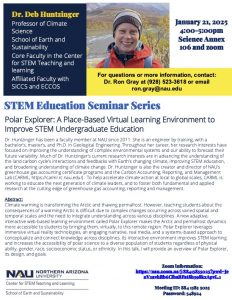 Polar Explorer: A Place-Based Virtual Learning Environment to Improve STEM Undergraduate Education
Polar Explorer: A Place-Based Virtual Learning Environment to Improve STEM Undergraduate Education
Climate warming is transforming the Arctic and thawing permafrost. However, teaching students about the consequences of a warming Arctic is difficult due to complex changes occurring across varied spatial and temporal scales and the need to integrate understanding across various disciplines. A new adaptive, interactive web-based learning environment called Polar Explorer makes the Arctic and permafrost dynamics more accessible to students by bringing them, virtually, to this remote region. Polar Explorer leverages immersive virtual reality technologies, an engaging narrative, real media, and a systems-based approach to conceptualize and connect knowledge across disciplines. Its interactive environment improves STEM learning and increases the accessibility of polar science to a diverse population of students regardless of physical ability, gender, race, socioeconomic status, or ethnicity. In this talk, I will provide an overview of Polar Explorer, its design, and goals.
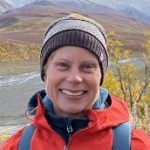 Dr. Deborah Huntzinger has been a faculty member at NAU since 2011. She is an engineer by training, with a bachelor’s, master’s, and Ph.D. in Geological Engineering. Throughout her career, her research interests have focused on improving the understanding of complex environmental systems and our ability to forecast their future variability. Much of Dr. Huntzinger’s current research interests are in advancing the understanding of the land carbon cycle’s interactions and feedbacks with Earth’s changing climate, improving STEM education, and broadening understanding of climate change. Dr. Huntzinger is also the creator and director of NAU’s greenhouse gas accounting certificate programs and the Carbon Accounting, Reporting, and Management Lab (CARML; https://carml.rc.nau.edu/). To help accelerate climate action at local to global scales, CARML is working to educate the next generation of climate leaders, and to foster both fundamental and applied research at the cutting edge of greenhouse gas accounting, reporting and management.
Dr. Deborah Huntzinger has been a faculty member at NAU since 2011. She is an engineer by training, with a bachelor’s, master’s, and Ph.D. in Geological Engineering. Throughout her career, her research interests have focused on improving the understanding of complex environmental systems and our ability to forecast their future variability. Much of Dr. Huntzinger’s current research interests are in advancing the understanding of the land carbon cycle’s interactions and feedbacks with Earth’s changing climate, improving STEM education, and broadening understanding of climate change. Dr. Huntzinger is also the creator and director of NAU’s greenhouse gas accounting certificate programs and the Carbon Accounting, Reporting, and Management Lab (CARML; https://carml.rc.nau.edu/). To help accelerate climate action at local to global scales, CARML is working to educate the next generation of climate leaders, and to foster both fundamental and applied research at the cutting edge of greenhouse gas accounting, reporting and management.
Spring 2024 lecture
March 26, 2024 | 4 – 5pm
The recorded lecture and presentation slides are available.
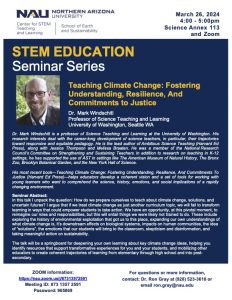 Teaching Climate Change: Fostering Understanding, Resilience, And Commitments to Justice
Teaching Climate Change: Fostering Understanding, Resilience, And Commitments to Justice
In this talk I unpack the question: How do we prepare ourselves to teach about climate change, solutions, and uncertain futures? I argue that if we treat climate change as just another curriculum topic, we will fail to transform learning in ways that could empower students to take action. We have an opportunity, at this pivotal moment, to reimagine our roles and responsibilities, but this will entail things we were likely not trained to do. These include exploring the history of environmental exploitation that got us to this place, expanding our own understandings of what climate change is, it’s downstream effects on biological systems, impacts on human communities, the idea of “solutions”, the emotions that our students will bring to the classroom, skepticism and disinformation, and taking meaningful action on sustainability.
The talk will be a springboard for deepening your own learning about key climate change ideas, helping you identify resources that support transformative experiences for you and your students, and mobilizing other educators to create coherent trajectories of learning from elementary through high school and into post-secondary.
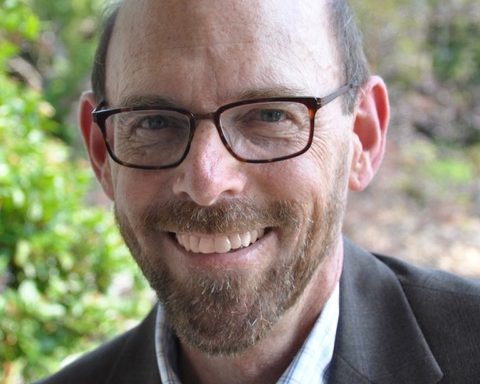 Dr. Mark Windschitl is a professor of Science Teaching and Learning at the University of Washington. His research interests deal with the career-long development of science teachers, in particular, their trajectories toward responsive and equitable pedagogy. He is the lead author of Ambitious Science Teaching (Harvard Ed Press), along with Jessica Thompson and Melissa Braaten. He was a member of the National Research Council’s Committee on Strengthening and Sustaining Teachers. In addition to research on teaching in K-12 settings, he has supported the use of AST in settings like The American Museum of Natural History, The Bronx Zoo, Brooklyn Botanical Garden, and the New York Hall of Science.
Dr. Mark Windschitl is a professor of Science Teaching and Learning at the University of Washington. His research interests deal with the career-long development of science teachers, in particular, their trajectories toward responsive and equitable pedagogy. He is the lead author of Ambitious Science Teaching (Harvard Ed Press), along with Jessica Thompson and Melissa Braaten. He was a member of the National Research Council’s Committee on Strengthening and Sustaining Teachers. In addition to research on teaching in K-12 settings, he has supported the use of AST in settings like The American Museum of Natural History, The Bronx Zoo, Brooklyn Botanical Garden, and the New York Hall of Science.
His most recent book—Teaching Climate Change: Fostering Understanding, Resilience, And Commitments To Justice (Harvard Ed Press)—helps educators develop a coherent vision and a set of tools for working with young learners who want to comprehend the science, history, emotions, and social implications of a rapidly changing environment.
Spring 2024 lecture
March 1, 2024 | 12:30 – 1:30pm
The recorded lecture and presentation slides are available.
Society’s educational debts in biology, chemistry, and physics across race, gender, and class
The success of collaborative instruction in helping students achieve higher grades in introductory science, technology, engineering, and mathematics (STEM) courses has led many educators and researchers to assume these methods also address inequities. However, little evidence tests this assumption. Structural inequities in our society have led to the chronic underrepresentation of Black, Hispanic, women, and first-generation students in STEM disciplines. Broadening participation from underrepresented groups in biology, chemistry, and physics would reduce social inequalities while harnessing diversity’s economic impact on innovation and workforce expansion. We leveraged data on content knowledge from 18,791 students in 305 introductory courses using collaborative instruction at 45 institutions. We modeled student outcomes across the intersections of gender, race, ethnicity, and first-generation college status within and across science disciplines. Using these models, we examine the educational debts society owes college science students prior to instruction and whether instruction mitigates, perpetuates, or exacerbates those debts. The size of these educational debts and the extent to which courses added to or repaid these debts varied across disciplines. Across all three disciplines, society owed Black and Hispanic women and first-generation Black men the largest educational debts. Collaborative instructional strategies were not sufficient to repay society’s educational debts.
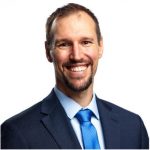 Ben Van Dusen is an associate professor of Science Education at Iowa State University. He has three intertwined strands of research: 1) STEM education assessment – Dr. Van Dusen is the director of the LASSO platform (www.lassoeducation.org), an online tool to support STEM instructors in making empirically grounded pedagogical decisions. It is also a tool that supports large-scale STEM education research across contexts. 2) Investigating issues of equity in STEM student outcomes – Dr. Van Dusen has investigated the impacts of educational debts across science disciplines and how higher education science courses either repay or exacerbate them. 3) The critical examination of quantitative research methodologies – Dr. Van Dusen has published, run workshops, and taught graduate courses exploring how critical perspectives can inform the quantitative methods employed in education research.
Ben Van Dusen is an associate professor of Science Education at Iowa State University. He has three intertwined strands of research: 1) STEM education assessment – Dr. Van Dusen is the director of the LASSO platform (www.lassoeducation.org), an online tool to support STEM instructors in making empirically grounded pedagogical decisions. It is also a tool that supports large-scale STEM education research across contexts. 2) Investigating issues of equity in STEM student outcomes – Dr. Van Dusen has investigated the impacts of educational debts across science disciplines and how higher education science courses either repay or exacerbate them. 3) The critical examination of quantitative research methodologies – Dr. Van Dusen has published, run workshops, and taught graduate courses exploring how critical perspectives can inform the quantitative methods employed in education research.
Fall 2023 lecture
November 17, 2023 | 10:30 – 11:30am
The recorded lecture and presentation slides are available.
Working Together to Center Justice in Science Education
Centering justice in and through science education has never been more urgent than it is now. Though we know much more about what justice-centering in classrooms and pedagogy needs to entail, we need frameworks, programmatic structures, and examples to support teachers in enacting these visions. In this symposium, I will share a justice-centered ambitious science teaching framework we call the JuST Framework. We constructed the framework based on analyses of one group of preservice teachers’ efforts to enact ambitious science teaching (AST) in ways that were designed to sustain the culture of youth living in a neighboring rural community. Continuing the work with the JuST framework in our current NSF grant, professional learning communities of practicing science teachers conducted design-based research to explore particular JuST practices to meet persistent problems of JuST practice. In the symposium, I will share the structures we designed to support these efforts, as well as our successes and continued struggles.
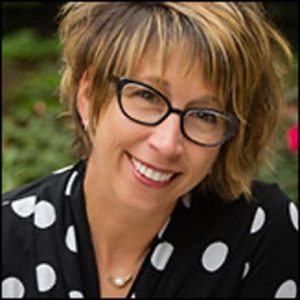 Dr. April Luehmann joined the University of Rochester community in 2002 as a science educator, teaching in the science teacher preparation and doctoral programs. She previously taught mathematics and science to secondary school students in Illinois, Michigan, and Indiana. Luehmann is currently the principal investigator on a Discovery Research PreK-12 (DRK-12) grant from the National Science Foundation (NSF) that studies how practicing teachers are using a culture-setting unit to establish classroom norms and commitments for justice-centered ambitious science teaching throughout the school year. Luehmann is the lead designer and researcher for the Warner School innovative teacher education program that merges learning to teach in out-of-school (low-stakes) settings as a complement to and scaffold for learning to teach in in-school (high-stakes) settings. Each year of the program, the science education master’s students work with university faculty to run an environmental action camp for local rural youth and a science inquiry afterschool club for local urban teens, both of which serve as foci for her research.
Dr. April Luehmann joined the University of Rochester community in 2002 as a science educator, teaching in the science teacher preparation and doctoral programs. She previously taught mathematics and science to secondary school students in Illinois, Michigan, and Indiana. Luehmann is currently the principal investigator on a Discovery Research PreK-12 (DRK-12) grant from the National Science Foundation (NSF) that studies how practicing teachers are using a culture-setting unit to establish classroom norms and commitments for justice-centered ambitious science teaching throughout the school year. Luehmann is the lead designer and researcher for the Warner School innovative teacher education program that merges learning to teach in out-of-school (low-stakes) settings as a complement to and scaffold for learning to teach in in-school (high-stakes) settings. Each year of the program, the science education master’s students work with university faculty to run an environmental action camp for local rural youth and a science inquiry afterschool club for local urban teens, both of which serve as foci for her research.
Spring 2022 lecture
March 3, 2022 | 3:45 – 4:45 pm
The recorded lecture and presentation (slides 80mb w/ video or pdf) are available.
Approximating Practice in Mathematics Teacher Education: Supporting and Revealing Teacher Candidate Learning
Practice-based approaches to teacher education, such as “approximations of practice,” offer promising learning opportunities for teacher candidates (TCs’) by structuring TCs’ investigation into and enactment of the work of teaching. In this talk, I share details and insights on the use of two types of approximations of practice —coached rehearsals and scripting tasks—in the context of secondary mathematics teacher preparation. Using illustrative examples from practice and drawing on past and ongoing research, I aim to highlight three design considerations—(1) how “student voice” can be represented as part of approximations, (2) how to understand the “authenticity” of approximations of practice, and (3) how approximations of practice can serve to “reveal” the resources TCs bring to their work. Through this, suggestions for practice, research, and their connections will be discussed.
Dr. Matthew Campbell is an associate professor of mathematics education in the Department of Curriculum & Instruction/Literacy Studies at West Virginia University. His research in the area of teacher education pays particular attention to the preparation and professional education of secondary mathematics teachers. This includes investigation of innovative and transformative policies and programmatic pathways that support the recruitment, preparation, retention, and continued support of teachers, particularly in rural contexts. He also has a long-running line of scholarly work focused on the use of practice- based teacher education pedagogies, with a particular focus on supporting teachers’ development of skill with facilitating mathematics discussions. His research has been published in Journal of Teacher Education, Journal of Mathematics Teacher Education, Educational Administration Quarterly, and Education Policy Analysis Archives, among other journals.
Fall 2022 lecture
October 5, 2022 | 3:00 – 4:00 pm
The recorded lecture is not available.
The Meaning Beyond The Words: How Language, Race, & Culture Impact Science Teaching & Learning
This presentation explores how race, culture and language intersect to create the condition of contemporary learning. For years, research on the language of classrooms explored how the way we say things impacts students’ sense of belonging. Despite this research, Science and Technology Education have failed to adequately explore how issues of race, language, and culture shape the outcomes of teaching and learning in science. Through a sequence of research, this presentation explores the theoretical and pragmatic aspects of this dilemma. From a theoretical perspective, the talk will explore the Language-Identity dilemma. As students learn, the way academic language is taught to them can present a cognitive and cultural conflict. From a cognitive perspective, if science is taught without respect to the implications of how language is learned, students can be misunderstood and misunderstand the teacher’s complex discourse. From a cultural conflict perspective, students may feel they are cultural outsiders when the language of the classroom positions them as outsiders. The presentation will provide an overview of a series of qualitative and quantitative experiments that document the realities of this complex interaction.
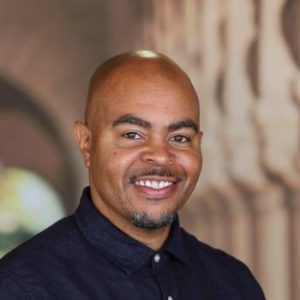 Dr. Bryan A. Brown joined Stanford University in 2004 after working on a post-doctoral fellowship at Michigan State University. His award-winning research focuses on improving urban science education. He focuses on exploring how language and identity impact urban students’ learning. Dr. Brown is a former high school science teacher who earned a Bachelor’s degree in Biological Sciences from Hampton University, a Master’s degree in Educational Psychology from the University of California, and a Ph.D. in Educational Psychology from the University of California, Santa Barbara.
Dr. Bryan A. Brown joined Stanford University in 2004 after working on a post-doctoral fellowship at Michigan State University. His award-winning research focuses on improving urban science education. He focuses on exploring how language and identity impact urban students’ learning. Dr. Brown is a former high school science teacher who earned a Bachelor’s degree in Biological Sciences from Hampton University, a Master’s degree in Educational Psychology from the University of California, and a Ph.D. in Educational Psychology from the University of California, Santa Barbara.
Spring 2021 lecture
April 16, 2021 | 10:00 – 11:00 am (Virtual)
The recorded lecture is available.
Rethinking the Elementary School Science Investigation: Design Research at the Intersection of Science, Children, and Elementary Teaching Systems
A major question in current research in science education is how to engage young students in the epistemic practices of science (for example, argumentation and modeling) in ways that are meaningful to them and powerful for the development of science understandings. Drawing from socio-cultural theory, studies of scientists at work, and established theories in the Learning Sciences, I conceptualize science practices as collective, conceptual, and emergent from uncertain activity. In my talk, I unpack this argument, show how it guides a design framework for rethinking the elementary science investigation, and describe a program of design research for embodying, testing, and refining the framework. Further, I describe how this research engages teachers in collaboratively developing the framework and the teaching practices that allow it to “ascend from the abstract to the concrete.”
Dr. Eve Manz is Assistant Professor of Science Education at the Boston University Wheelock College of Education & Human Development. Her research focuses on understanding how to design and orchestrate learning environments that apprentice young students into science practices such as modeling, argumentation, and explanation. Manz works closely with elementary teachers and instructional leaders to develop new approaches to science teaching and learning that center student and teacher sense-making. Her work has been funded by the James S. McDonnell Foundation, the George Lucas Educational Foundation, and an early career research grant from the National Science Foundation. She is the recipient of the 2019 Early Career Research Award from the National Association for Research in Science Teaching. Her twitter handle is @eveimanz.
Spring 2021 lecture
January 22, 2021 | 10:00 – 11:00 am (Virtual)
The recorded lecture and presentation slides are available.
The COVID-19 Pandemic and Systemic Racism: Creating a “New Normal” for STEM Education with Social Justice for All Students
The COVID-19 pandemic offers an unprecedented context to engage all students in societally
relevant problems. The presentation proposes an instructional framework that STEM education, by foregrounding justice and capitalizing on new advances in STEM disciplines, could offer solutions to systematic racism. Specifically, the instructional framework leverages data science, computer science, and multidisciplinary convergence of STEM disciplines, which have become key to finding solutions to the pandemic. By harnessing the affordances of new advances in STEM disciplines to address systemic racism, the instructional framework presents one approach to creating a “new normal” for STEM education with social justice for all students. During the presentation, we will walk the participants through navigating data sources and share our science lesson as an example of our instructional framework.
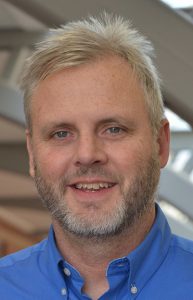 Dr. Todd Campbell is the Department Head of Curriculum and Instruction and a Professor of Science Education in the Neag School of Education. His research focuses on cultivating imaginative and equitable representations of STEM activity. This is accomplished in formal science learning environments through partnering with pre-service and in-service science teachers and leaders to collaboratively focus on supporting student use of modeling as an anchoring epistemic practice to reason about events that happen in the natural world.
Dr. Todd Campbell is the Department Head of Curriculum and Instruction and a Professor of Science Education in the Neag School of Education. His research focuses on cultivating imaginative and equitable representations of STEM activity. This is accomplished in formal science learning environments through partnering with pre-service and in-service science teachers and leaders to collaboratively focus on supporting student use of modeling as an anchoring epistemic practice to reason about events that happen in the natural world.
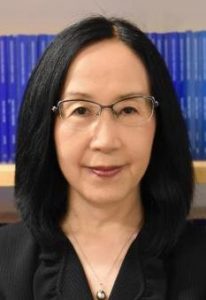 Dr. Okhee Lee is widely known for advancing research, policy, and practice that simultaneously promote science and language learning for all students, particularly English learners. Her research areas include science education, language and culture, and teacher education. She leads collaborative research between NYU and Stanford University to develop instructional materials aligned with the Next Generation Science Standards (NGSS) to promote science and language learning for elementary students, including English learners.
Dr. Okhee Lee is widely known for advancing research, policy, and practice that simultaneously promote science and language learning for all students, particularly English learners. Her research areas include science education, language and culture, and teacher education. She leads collaborative research between NYU and Stanford University to develop instructional materials aligned with the Next Generation Science Standards (NGSS) to promote science and language learning for elementary students, including English learners.
Spring 2019 lecture
April 26, 2019 | 10:30 – 11:30 am
Science & Health Building, Room 512
Northern Arizona University
Presentation slides and video available.
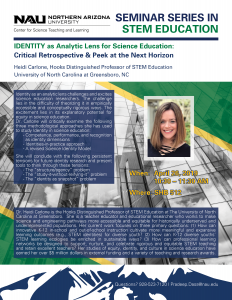
IDENTITY as Analytic Lens for Science Education: Critical Retrospective & Peek at the Next Horizon
Identity as an analytic lens challenges and excites science education researchers. The challenge lies in the difficulty of theorizing it in empirically accessible and conceptually rigorous ways. The excitement lies in its explanatory potential for equity in science education.
Dr. Carlone will critically examine the following three methodological approaches she has used to study Identity in science education:
- Competence, performance, and recognition as identity dimensions
- Identities-in-practice approach
- A revised Science Identity Model
She will conclude with the following persistent tensions for future identity research and present tools to think through these tensions:
- The “structure/agency” problem
- The “study-it-without-reifying-it” problem – The “identity as snapshot” problem
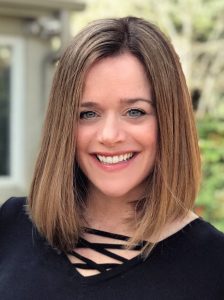
Dr. Heidi Carlone is the Hooks Distinguished Professor of STEM Education at The University of North Carolina at Greensboro. She is a teacher educator and educational researcher who works to make science and engineering pathways more accessible and equitable for historically underserved and underrepresented populations. Her current work focuses on three primary questions: (1) How can innovative K-12 in-school and out-of-school instruction cultivate more meaningful and expansive learning outcomes (e.g., STEM identities) for diverse youth? (2) How can K-12 diverse youths’ STEM learning ecologies be enriched in sustainable ways? (3) How can professional learning networks be designed to support, nurture, and celebrate rigorous and equitable STEM teaching and retain excellent teachers? Her studies of equity, identity, and culture in science education have earned her over $5 million dollars in external funding and a variety of teaching and research awards.
Fall 2018 lecture
September 28, 2018 | 10:30 – 11:30 am
Science & Health Building, Room 512
Northern Arizona University
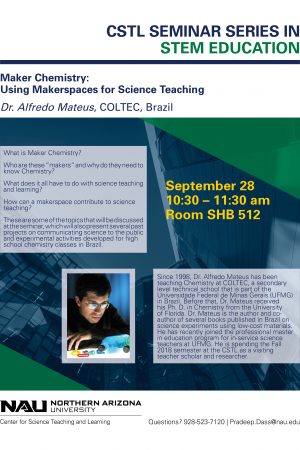
Maker Chemistry: Using Makerspaces for Science Teaching
What is Maker Chemistry? Who are these “makers” and why do they need to know Chemistry? What does it all have to do with science teaching and learning?
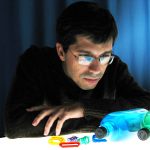
Since 1998, Dr. Alfredo Mateus has been teaching Chemistry at COLTEC, a secondary level technical school that is part of the Universidade Federal de Minas Gerais (UFMG) in Brazil. Before that, Dr. Mateus received his Ph. D. in Chemistry from the University of Florida. Dr. Mateus is the author and co- author of several books published in Brazil on science experiments using low-cost materials. He has recently joined the professional master in education program for in-service science teachers at UFMG. He is spending the Fall 2018 semester at the CSTL as a visiting teacher scholar and researcher.
Spring 2018 lecture
February 6, 2018 | 10:30 – 11:30 am
Science & Health Building, Room 512
Northern Arizona University
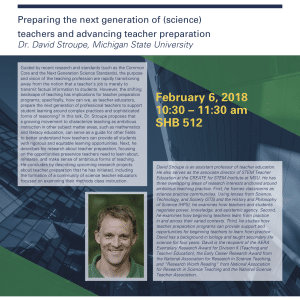
Preparing the Next Generation of (Science) Teachers and Advancing Teacher Preparation
In this talk, Dr. Stroupe proposes that a growing movement to characterize teaching as ambitious instruction in other subject matter areas, such as mathematics and literacy education, can serve as a guide for other fields to better understand how teachers can provide all students with rigorous and equitable learning opportunities. The recorded lecture is available on Youtube and the accompanying slides.
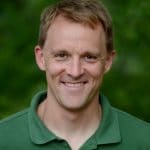
Dr. David Stroupe is an assistant professor of teacher education. He also serves as the associate director of STEM Teacher Education at the CREATE for STEM Institute at MSU.
Fall 2017 lecture
November 3, 2017 | 10:30 – 11:30 am
Science & Health Building, Room 514
Northern Arizona University
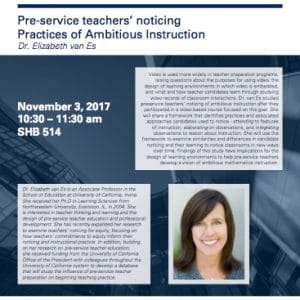
Pre-service Teachers’ Noticing Practices of Ambitious Instruction
Findings of this study have implications for the design of learning environments to help pre-service teachers develop a vision of ambitious mathematics instruction. The record lecture is available on Youtube and the accompanying slides.
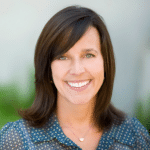
Dr. Elizabeth van Es is an Associate Professor in the School of Education at University of California, Irvine. She received her Ph.D in Learning Sciences from Northwestern University, Evanston, IL, in 2004.
Spring 2017 lecture
April 14, 2017 | 10:30 – 11:30 am
Science & Health Building, Room 512
Northern Arizona University
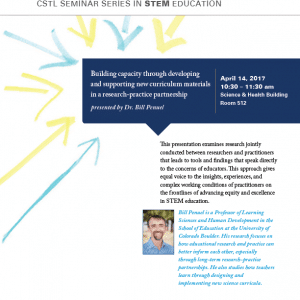
Building Capacity Through Developing and Supporting New Curriculum Materials in a Research-Practice Partnership
This presentation examines research jointly conducted between researchers and practitioners that leads to tools and findings that speak directly to the concerns of educators. This approach gives equal voice to the insights, experiences, and complex working conditions of practitioners on the frontlines of advancing equity and excellence in STEM education. The recorded lecture is available on YouTube.
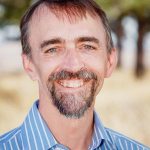
Dr. Bill Penuel is a Professor of Learning Sciences and Human Development in the School of Education at the University of Colorado Boulder. His research focuses on how educational research and practice can better inform each other, especially through long-term research-practice partnerships. He also studies how teachers learn through designing and implementing new science curricula.
Spring 2016 lecture
May 6, 2016 | 10:15 – 11:15 am
Science & Health Building, Room 512
Northern Arizona University
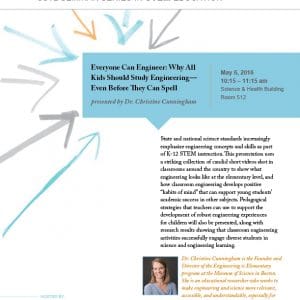
Everyone Can Engineer: Why All Kids Should Study Engineering—Even Before They Can Spell
This presentation by Dr. Christine Cunningham on May 13, 2016, used a striking collection of candid short videos shot in classrooms around the country to show what engineering looks like at the elementary level, and how classroom engineering develops positive “habits of mind” that can support young students’ academic success in other subjects. The recorded lecture is available on YouTube.
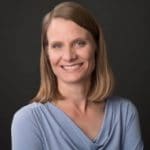
Dr. Christine Cunningham is an educational researcher who works to make engineering and science more relevant, accessible, and understandable, especially for underserved and underrepresented populations. A vice president at the Museum of Science, Boston since 2003, she founded and directs Engineering is Elementary™, a groundbreaking project that integrates engineering concepts into elementary curriculum and teacher professional development.
Inaugural lecture
October 16, 2015 | 11:30 am – 12:30 pm
Cline Library, Room 249
Northern Arizona University
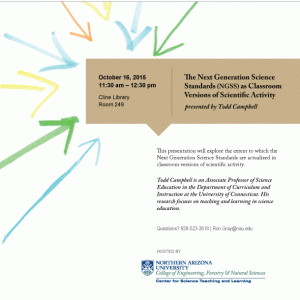
The Next Generation Science Standards (NGSS) as Classroom Versions of Scientific Activity
Thank you to everyone who was able to attend our inaugural seminar on Friday, October 16, 2015, with Dr. Todd Campbell. This presentation explored the extent to which the Next Generation Science Standards are actualized in classroom versions of scientific activity. For those who were not able to attend, he sent along his PowerPoint slides. The recorded lecture is also available on YouTube.
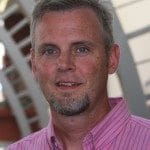 Todd Campbell is an Associate Professor of Science Education in the Department of Curriculum and Instruction at the University of Connecticut. His research focuses on teaching and learning in science education.
Todd Campbell is an Associate Professor of Science Education in the Department of Curriculum and Instruction at the University of Connecticut. His research focuses on teaching and learning in science education.
